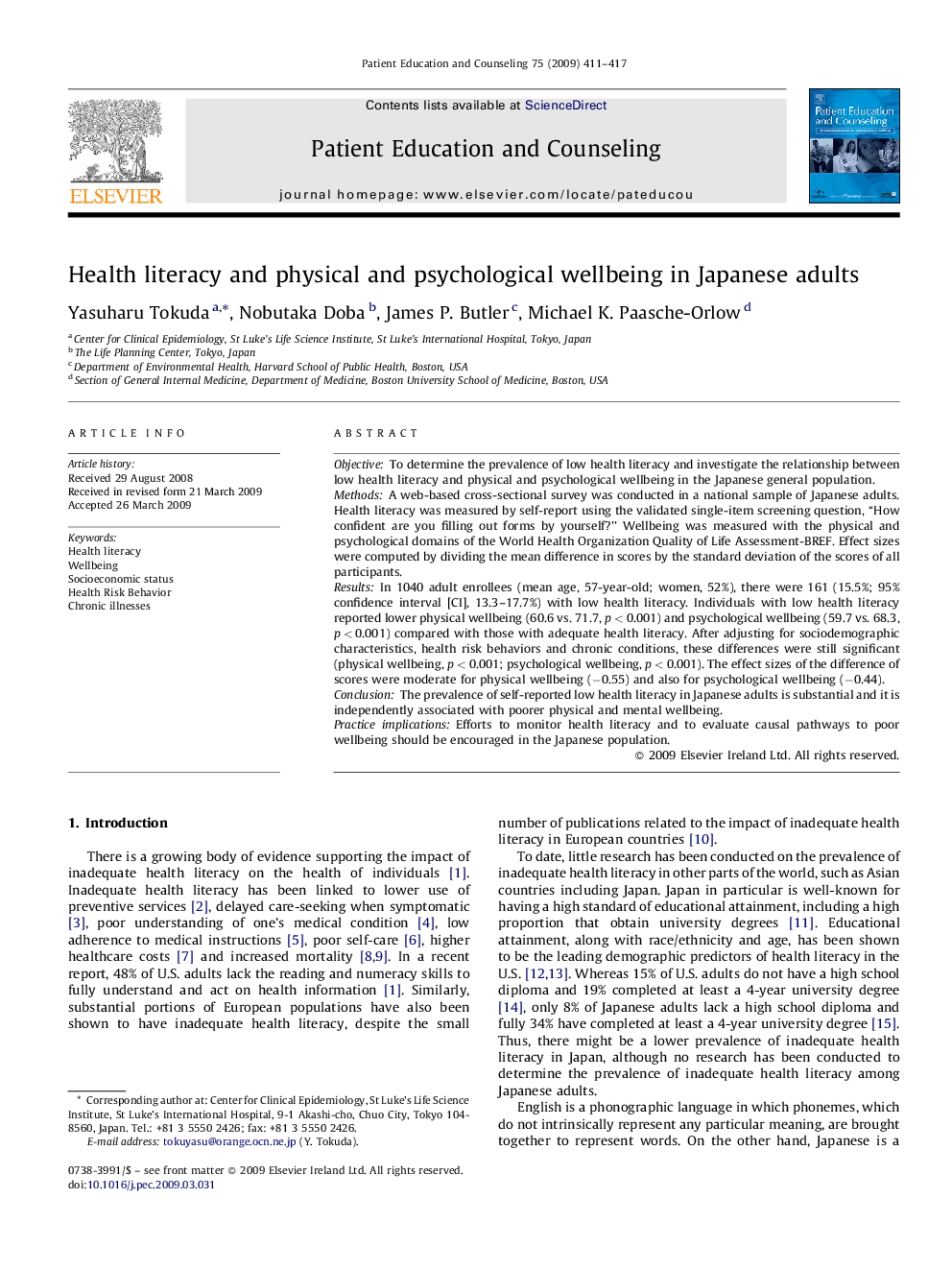| کد مقاله | کد نشریه | سال انتشار | مقاله انگلیسی | نسخه تمام متن |
|---|---|---|---|---|
| 3814034 | 1245985 | 2009 | 7 صفحه PDF | دانلود رایگان |

ObjectiveTo determine the prevalence of low health literacy and investigate the relationship between low health literacy and physical and psychological wellbeing in the Japanese general population.MethodsA web-based cross-sectional survey was conducted in a national sample of Japanese adults. Health literacy was measured by self-report using the validated single-item screening question, “How confident are you filling out forms by yourself?” Wellbeing was measured with the physical and psychological domains of the World Health Organization Quality of Life Assessment-BREF. Effect sizes were computed by dividing the mean difference in scores by the standard deviation of the scores of all participants.ResultsIn 1040 adult enrollees (mean age, 57-year-old; women, 52%), there were 161 (15.5%; 95% confidence interval [CI], 13.3–17.7%) with low health literacy. Individuals with low health literacy reported lower physical wellbeing (60.6 vs. 71.7, p < 0.001) and psychological wellbeing (59.7 vs. 68.3, p < 0.001) compared with those with adequate health literacy. After adjusting for sociodemographic characteristics, health risk behaviors and chronic conditions, these differences were still significant (physical wellbeing, p < 0.001; psychological wellbeing, p < 0.001). The effect sizes of the difference of scores were moderate for physical wellbeing (−0.55) and also for psychological wellbeing (−0.44).ConclusionThe prevalence of self-reported low health literacy in Japanese adults is substantial and it is independently associated with poorer physical and mental wellbeing.Practice implicationsEfforts to monitor health literacy and to evaluate causal pathways to poor wellbeing should be encouraged in the Japanese population.
Journal: Patient Education and Counseling - Volume 75, Issue 3, June 2009, Pages 411–417